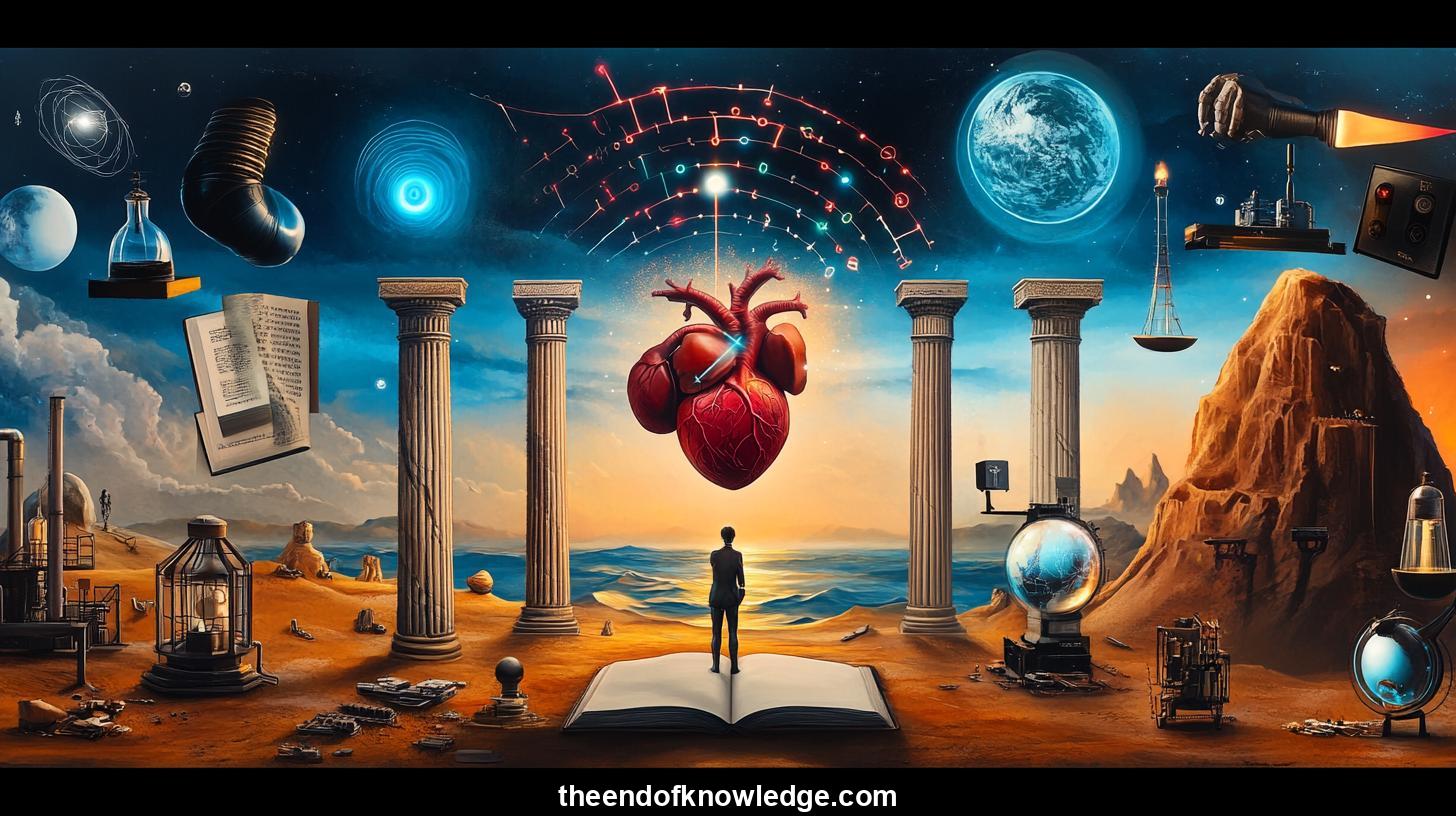Concept Graph, Resume & KeyIdeas using DeepSeek R1 :
graph LR
classDef transhumanism fill:#f4c2c2, font-weight:bold, font-size:14px;
classDef singularity fill:#b0e0e6, font-weight:bold, font-size:14px;
classDef ethics fill:#98fb98, font-weight:bold, font-size:14px;
classDef philosophy fill:#e6e6fa, font-weight:bold, font-size:14px;
classDef identity fill:#ffd700, font-weight:bold, font-size:14px;
A[Vault7-70] --> B[Transhumanism enhances humans
via tech. 1]
A --> C[AI surpassing humans
transforms civilization. 2]
A --> D[Ethics guide tech
advancements. 3]
A --> E[Nietzsche's Übermensch inspires
human transcendence. 4]
A --> F[Kurzweil predicts societal
changes. 5]
A --> G[AI questions consciousness,
human identity. 6]
B --> H[Religious concepts evolve
with transhumanism. 7]
B --> I[Redefines human purpose
and existence. 12]
B --> J[Human-tech merging as
future evolution. 13]
B --> K[New human evolution
through tech. 18]
B --> L[Blends tech with
philosophical inquiry. 20]
B --> M[Quest for human
improvement. 24]
C --> N[Challenges traditional notions
of progress. 21]
C --> O[Optimism and fear
about AI. 17]
C --> P[Symbiosis with tech
as evolution. 30]
D --> Q[Balance progress with
ethical considerations. 14]
D --> R[Global AI ethics
approach needed. 22]
D --> S[Human values central
in futures. 10]
D --> T[Adapt society to
enhanced capabilities. 16]
E --> U[Plato's Cave shows
reality perception shifts. 8]
E --> V[Historical philosophy informs
transhumanist thought. 15]
E --> W[Philosophy navigates transhumanist
ideas. 26]
G --> X[Consciousness defines human
uniqueness. 11]
G --> Y[Tech raises identity
questions. 23]
G --> Z[Consciousness-tech interplay
key focus. 29]
class A,B,H,I,J,K,L,M transhumanism;
class C,N,O,P singularity;
class D,Q,R,S,T ethics;
class E,U,V,W philosophy;
class G,X,Y,Z identity;
Resume:
The discussion revolves around transhumanism, exploring its philosophical underpinnings and the potential impact of emerging technologies on human evolution. Transhumanism is presented as a natural progression of humanism, aiming to transcend biological limitations through technology. Key figures like Nietzsche and Kurzweil are referenced to illustrate the concept of surpassing human potential, with Kurzweil's idea of singularity highlighting the transformative power of artificial intelligence.
The conversation delves into the ethical implications of artificial intelligence, questioning whether it will complement or surpass human capabilities. There is a focus on the need for new ethical frameworks to guide technological advancements, ensuring they align with human values. The role of consciousness and emotion in AI is also explored, raising questions about the future of human identity and purpose.
Religious and philosophical concepts are intertwined, with discussions on how traditional notions of divinity might evolve in a transhumanist context. The idea of a new era of human evolution is introduced, where technology not only enhances physical capabilities but also redefines human consciousness and existence. Historical references, such as Plato's Allegory of the Cave, are used to contextualize the shift in perception and understanding brought by these technologies.
The future of humanity is a central theme, with considerations of how technological advancements will reshape society. There is a balance struck between optimism about the potential benefits of transhumanism and caution regarding the ethical and societal challenges it presents. The discussion emphasizes the importance of maintaining human values amidst rapid technological change.
In conclusion, the conversation underscores the complexity of transhumanism, blending philosophical inquiry with technological exploration. It highlights the need for a nuanced approach to guide humanity through the transformative potential of emerging technologies.
30 Key Ideas:
1.- Transhumanism extends humanism by enhancing capabilities through technology.
2.- Singularity refers to AI surpassing human intelligence, transforming civilization.
3.- Ethical frameworks are crucial for guiding technological advancements.
4.- Nietzsche's Übermensch inspires transhumanist ideas of human transcendence.
5.- Kurzweil's singularity theory predicts profound societal changes.
6.- AI raises questions about consciousness and human identity.
7.- Traditional religious concepts may evolve with transhumanism.
8.- Plato's Allegory of the Cave illustrates shifting perceptions of reality.
9.- Technological advancements challenge existing value systems.
10.- Human values must be central in shaping transhumanist futures.
11.- Consciousness and emotion are key in defining human uniqueness.
12.- Transhumanism could redefine human purpose and existence.
13.- The future of humanity may involve merging with technology.
14.- Ethical considerations must balance technological progress.
15.- Historical philosophical ideas inform modern transhumanist thought.
16.- Society must adapt to the implications of enhanced human capabilities.
17.- The potential for AI to surpass humans sparks both optimism and fear.
18.- New forms of human evolution may emerge through technology.
19.- Maintaining human values is essential amidst rapid change.
20.- Transhumanism blends technology with philosophical inquiry.
21.- The concept of singularity challenges traditional notions of progress.
22.- AI ethics require a global, interdisciplinary approach.
23.- Human enhancement technologies raise questions about identity.
24.- Transhumanism reflects a broader quest for human improvement.
25.- The integration of technology and humanity is a complex journey.
26.- Philosophical frameworks help navigate transhumanist ideas.
27.- The future of work may be redefined by intelligent machines.
28.- Transhumanism encourages rethinking human limitations and possibilities.
29.- The interplay of technology and consciousness is a key focus.
30.- Humanity's evolution may involve symbiosis with technology.
Interviews by Plácido Doménech Espí & Guests - Knowledge Vault built byDavid Vivancos 2025
 >
>